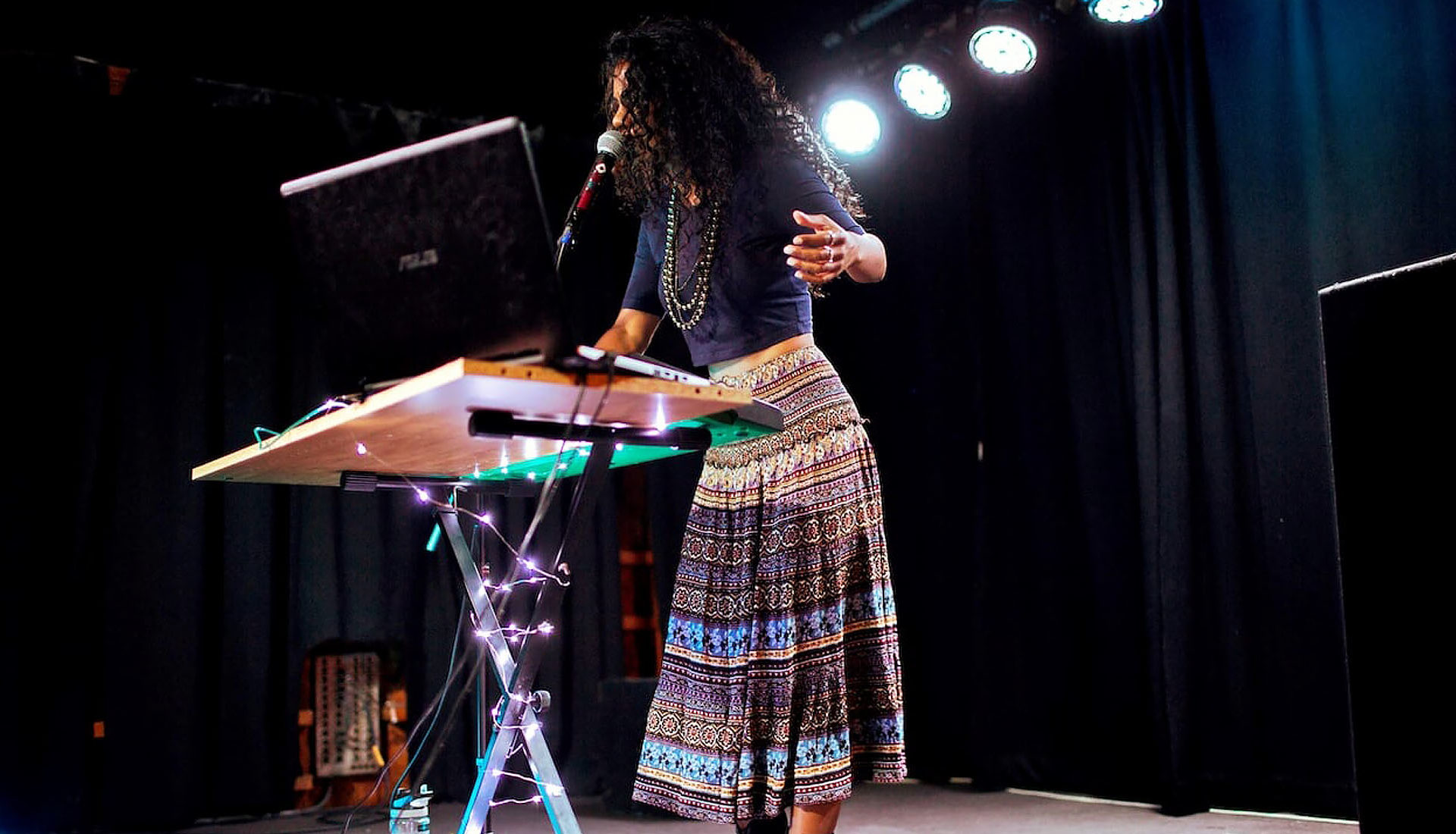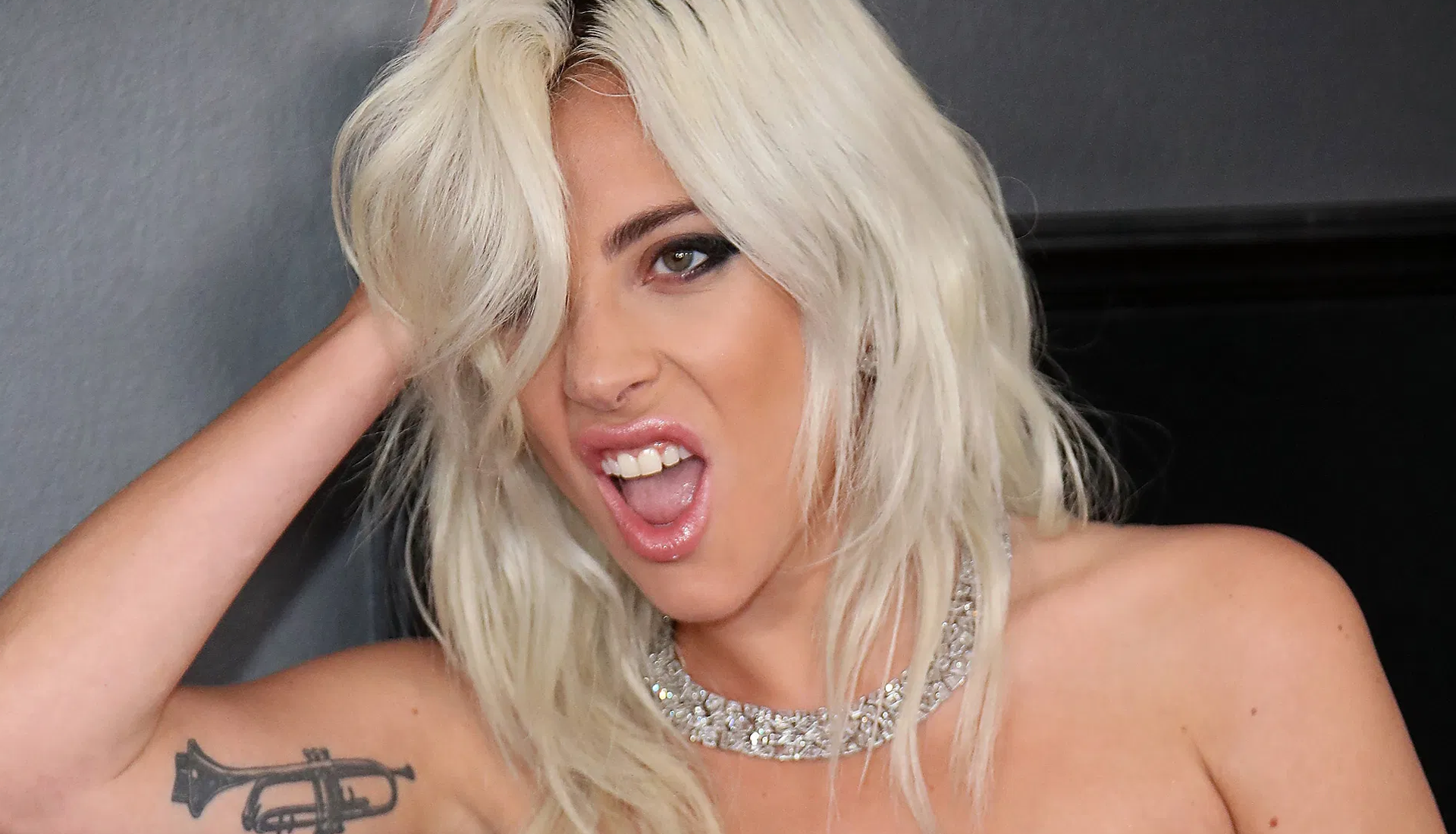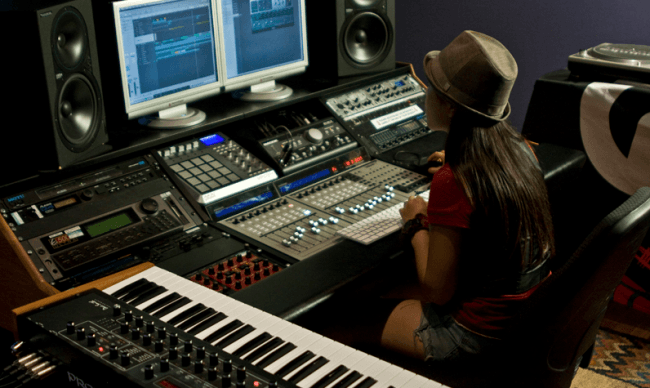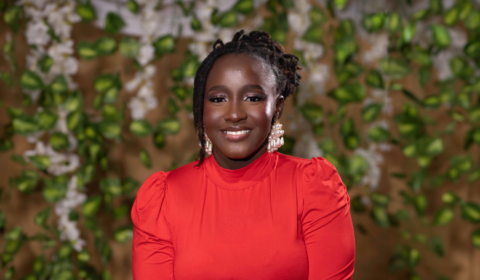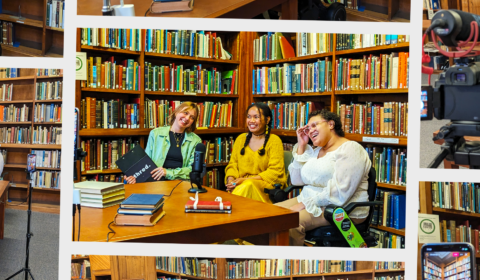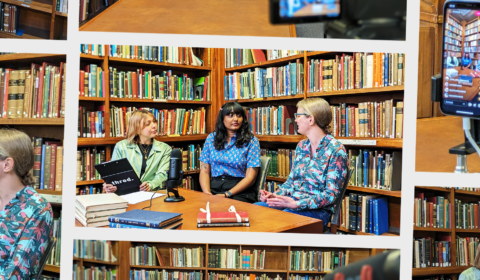Balancing festival lineups is all well and good, but the music industry can’t champion equality until it properly represents female producers.
The music industry as a whole, like many other professions, has always been inherently male dominated and no more so that at the mixing desk.
Eight years ago, if you typed ‘female producers’ into Google, just one name would come up – Linda Perry – and today’s results aren’t much better. What’s more, since the inception of Grammy category Producer of the Year, Non-Classical, only 7 of the 267 nominations have been presented to women. To date, none of them have taken home the golden gramophone.
Over the last decade, Lady Gaga and Taylor Swift are the only two women to have been featured on Billboard’s Top Producers chart, solely for work on their own songs. However, music production goes a lot further than the big names headlining our playlists and the fact is, it’s still largely a boys club.
While we seem to have approached a turning point in terms of fixing the pay gap between male and female artists, why do women remain so poorly represented on the technical side of things?
In February, DR Stacy L Smith published a report about gender equality in the music industry. It shows that women make up just 2.1% of producers, 12.3% of songwriters and 21.7% of artists. ‘What the experiences of women reveal is that the biggest barrier they face is the way the music industry thinks about women,’ said Smith. ‘The perception of women is highly stereotypical, sexualised, and without skill. Until those core beliefs are altered, women will continue to face a roadblock as they navigate their careers.’
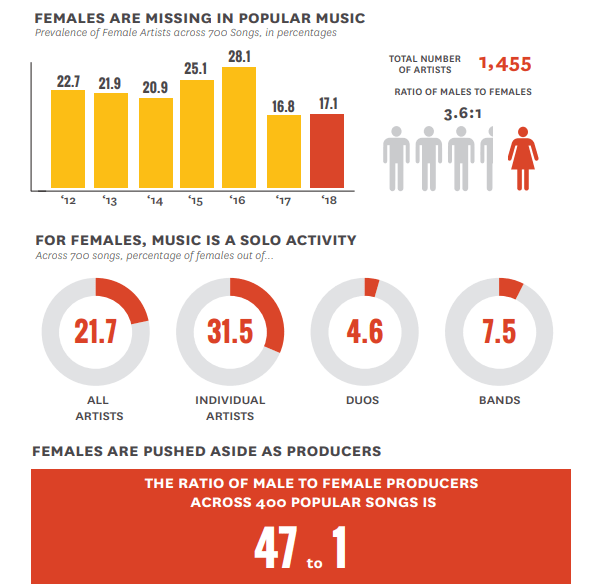

The absence of female presence in music is indeed shocking, but what stands out most to me is how little is being done to address it, as demonstrated by Smith’s stats. It’s a role that according to Samantha Warren, a business professor at Portsmouth University, ‘doesn’t get enough exposure.’
Conducting a project on women, tech, and cultural production in the music industry, Warren is looking into the ‘double barrier’ that female producers currently face. ‘Cultural industries do tend to be very male dominated,’ she says.’ Put technology in the mix and we see even more underrepresentation.’ In general, there is a lack of encouragement for young women to enter the science, technology, engineering and math (STEM) fields which also bleeds into the music production gender gap. ‘We grow up thinking we want to be popstars, not a synth expert,’ says Warren. ‘It’s not ‘cool’ to be tech-savvy, boys can be ‘geeky’ but if a girl is, it’s considered weird. These are the mindsets we need to change.’
She believes that this issue runs right down to the traits we ascribe to masculinity and femininity at birth. That it’s still only considered possible to ‘succeed’ in STEM or business related fields if we adopt traits considered typically male, with men more often being tied to decision making and leadership skills. ‘To succeed and be feminine in a different way is very difficult because it’s transgressive against those gender norms. This has to stop,’ she says. These ‘norms’ have obviously influenced the structure of the music industry massively – despite the rise of opportunities made available by the internet to self-produce and distribute music.
This is what Shweta Krishnamurthy is focusing on with her collective MPW, which teaches music production to women in the hope of seeing more gender balance within the field. ‘It’s my dream to encourage more women to start producing music and I want to do everything in my power to help make it as easy as I can for anyone who’s interested in learning,’ she says.









